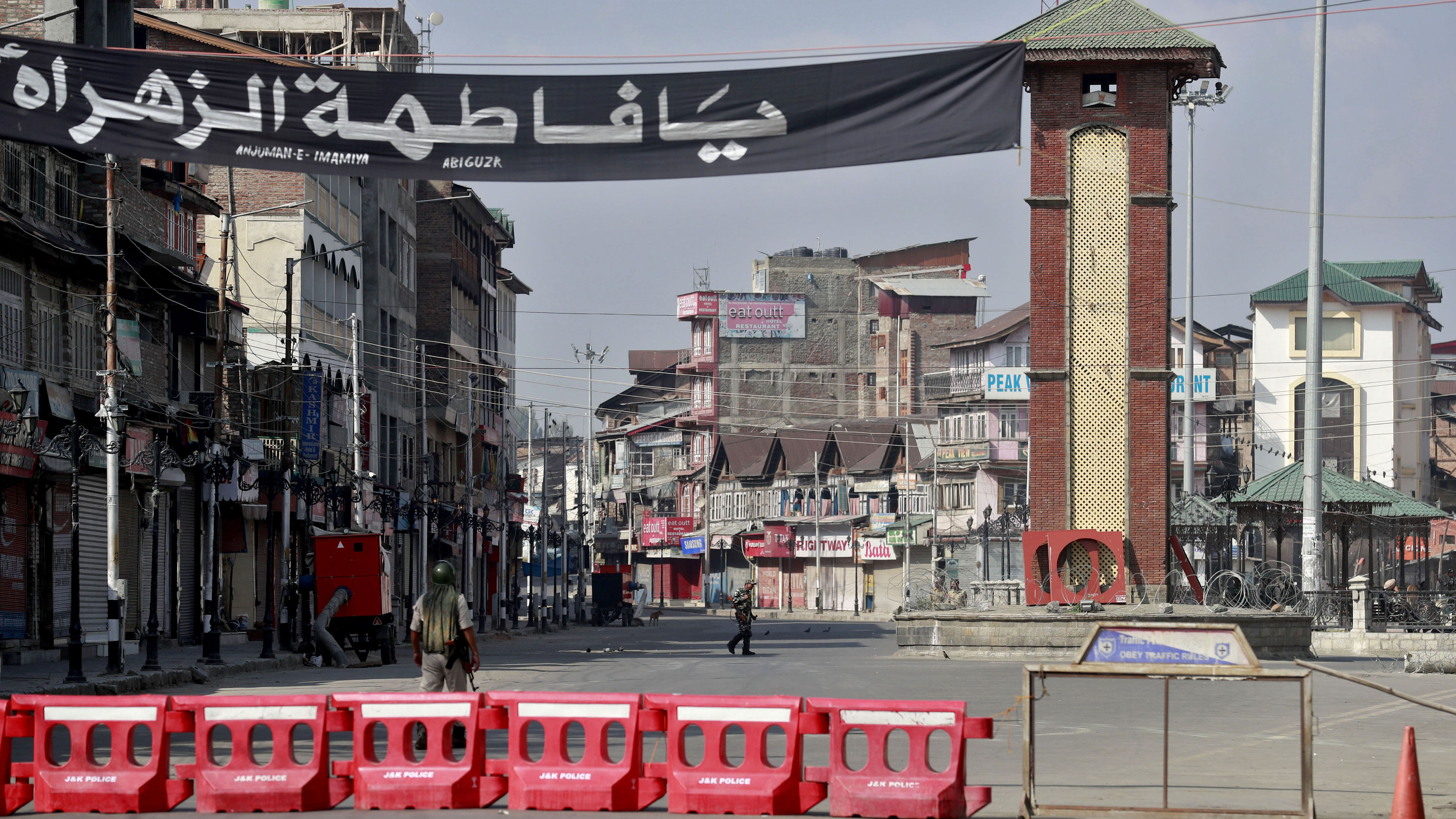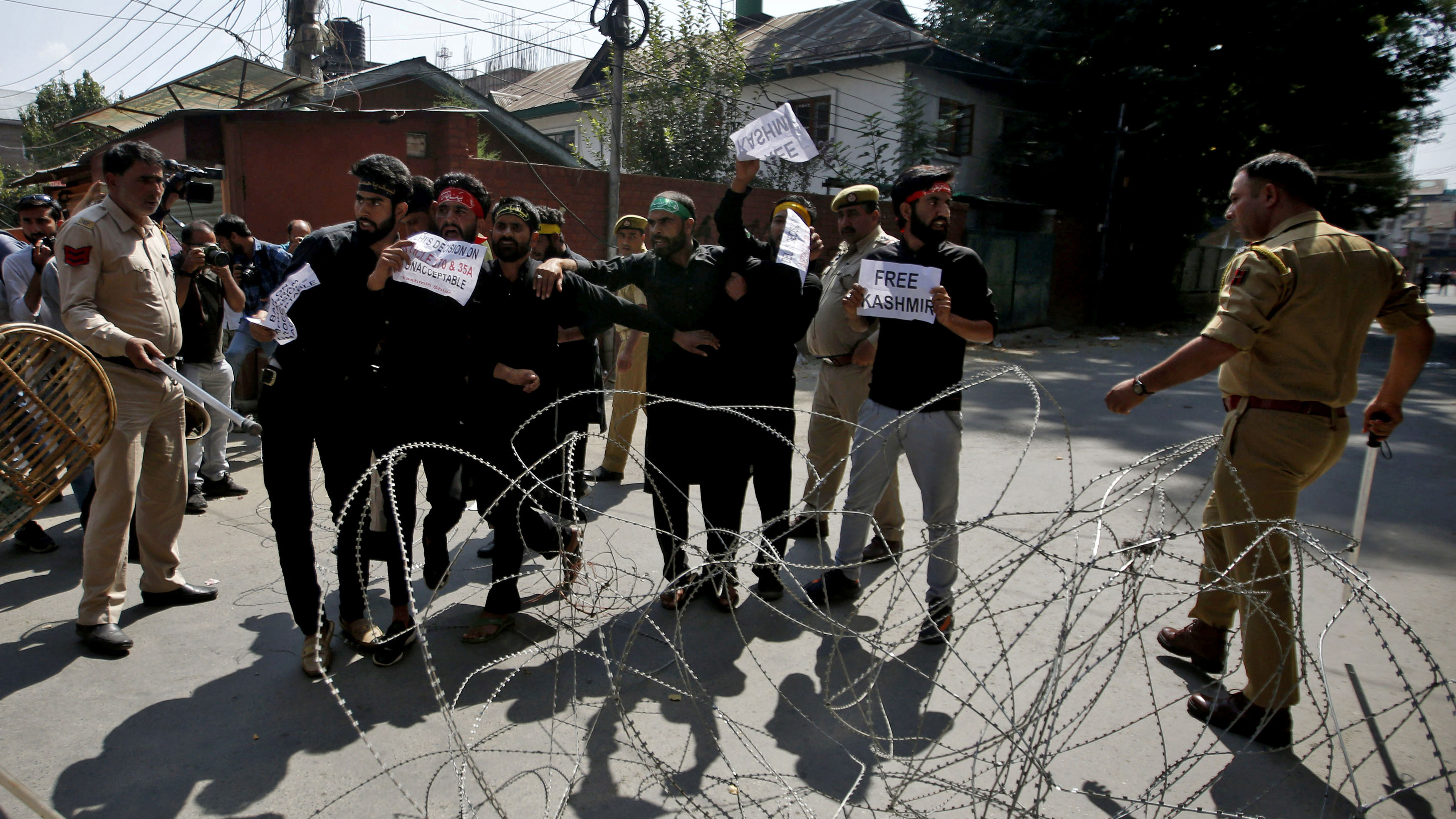

Indian security force personnel patrol a deserted street during restrictions in Srinagar, September 8, 2019. /Reuters Photo
Indian authorities on Sunday tightened a monthlong security lockdown, imposing curfew-like restrictions in several parts of Indian-administered Kashmir, including capital Srinagar, after breaking up religious processions by Shiite Muslims who defied a ban.
A military clampdown was imposed in Muslim-majority Kashmir from August 5 to prevent unrest as New Delhi revoked the disputed region's autonomy, with mobile phone networks and the internet still cut off in all but a few pockets.
Police drove around the city from early Sunday, announcing through bullhorns that "residents are informed not to venture out of their homes."
"Strict action under law would be taken against violators," they added.
Shiite Muslims worldwide stage processions and hold rallies during Muharram, the first month of the Islamic calendar – which started on September 1 this year – to mark the anniversary of the death of a grandson of the Prophet Mohammed.
Most such processions have been banned in Indian-administered Kashmir since the outbreak of insurgency against New Delhi's rule in 1989, on grounds that the rituals could be used to stoke anti-India sentiment.
At least two small protests were reported on Sunday morning involving between eight to 10 Shiite mourners, who were quickly detained and taken away in police vehicles, AFP reported. Police were also seen hitting the mourners with bamboo sticks.
Witnesses told AFP they saw at least six more similar protests, with police also detaining the participants.
Locals said the processions have taken on a political aspect this year after India's controversial autonomy decision.
Bamboo sticks

Kashmiri Shiite Muslims shout slogans behind concertina wire as they are stopped by Indian police while trying to participate in a Muharram procession, during restrictions in Srinagar, September 8, 2019. /Reuters Photo
Kashmir, split between India and Pakistan since 1947, has been the spark for two major wars and countless clashes between the two nuclear-armed arch-rivals.
Indian-administered Kashmir has seen a decades-old armed rebellion – backed by Pakistan, New Delhi claims – against Indian rule with tens of thousands, mostly civilians, killed.
On Saturday, four local journalists were injured while covering a protest involving up to 5,000 demonstrators, one of the biggest gatherings since the lockdown was imposed.
One journalist said his camera lens was broken and another had visible marks on his body after he was allegedly hit with bamboo sticks by security personnel.
Security forces also fired tear gas and live ammunition in the air.
Authorities had gradually loosened the curfew in parts of Srinagar in recent weeks but began to enforce it again from Friday.
An AFP reporter said Sunday's clampdown was one of the tightest since August 5. While barricades had been manned by up to three paramilitary troopers, there were now up to 10.
Tensions could further heighten on Tuesday, which is Ashura, the climactic 10th day of Moharram.
While the rituals are traditionally marked by Shiite Muslims in the Sunni-majority valley, Sunnis told AFP they would take part in processions on Tuesday to show solidarity with their fellow Muslims.
The tightened security measures came a day after India's national security adviser said the lifting of communication restrictions in Indian Kashmir depended on Pakistan stopping deploying "terrorists" and fomenting unrest there.

Copyright © 2018 CGTN. Beijing ICP prepared NO.16065310-3
Copyright © 2018 CGTN. Beijing ICP prepared NO.16065310-3